
Workplace culture, for many, is elusive. It’s an abstract concept, something that can’t be conjured or manufactured but only grows organically when the weather is just right, the breeze blows just so, and the planets align.
Hold still! Nobody move! The culture just got perfect in here!
To try to demystify what it takes to create great culture at small and medium size businesses, we surveyed about 1,600 employees and employers from SMBs—TriNet’s customers—about the secret herbs and spices that make for a savory workplace gumbo. At the heart of it all—the roux, if you will—is this idea of opportunity: People want opportunities to do the jobs they were hired to do and have their ideas valued; they want a chance to learn new skills and work on smart teams; they want to see a path forward in their career.
The nerve, right?

At Incredible Now, we believe that knowing is growing. So here’s what we know from asking a bunch of our customers what matters to them—in the form of survey stats that actually rank people’s needs and wants at work, plus some inspiring words from real humans who run heroic SMBs—so that you might be able to stew up a culture of your own that leads to more innovation, creativity, and, of course, growth.
Consider this an ingredients list.
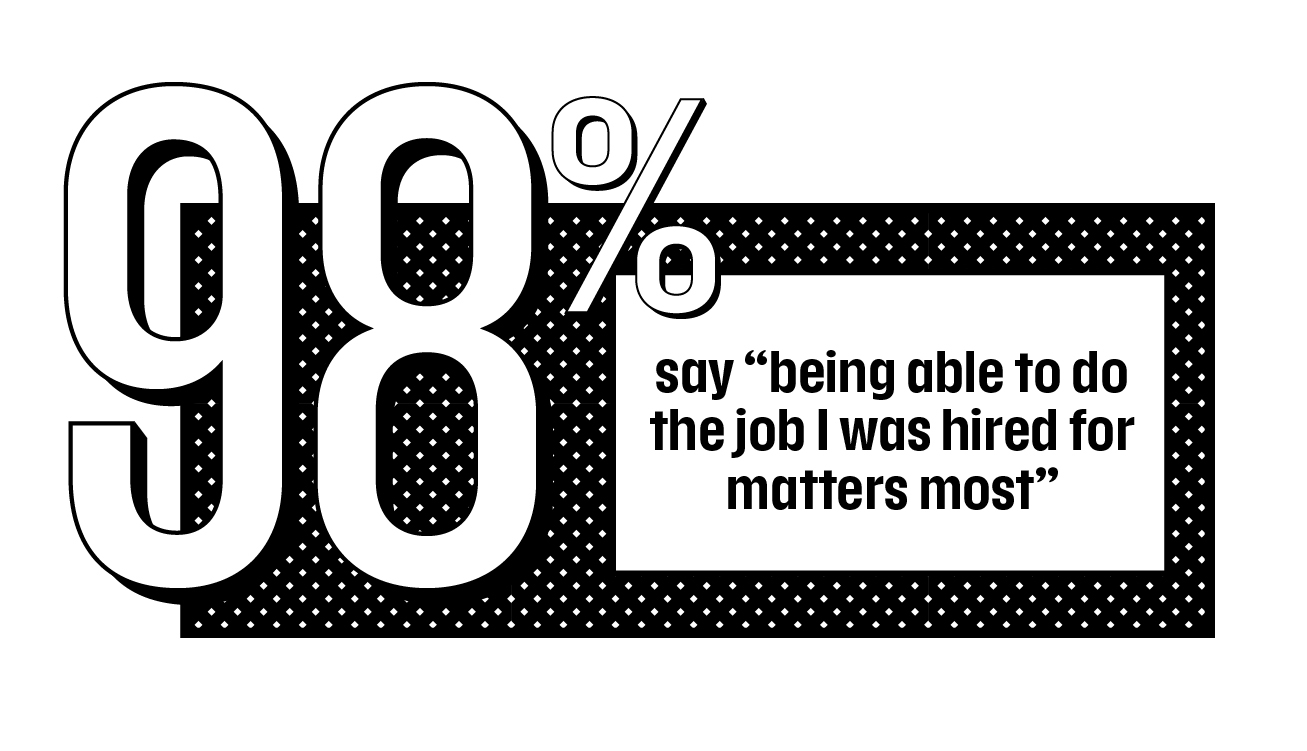
We all know it’s easier to do what we enjoy. That’s the idea that attracts people to jobs. But it’s one thing to bait top talent with the promise of meaningful work. It’s another, more valuable thing to deliver on that promise consistently. Put another way, if you support people who walk in the door with a vision and let them get after it, they might just surprise you.
Take the experience of Dia&Co. It’s a monthly personal styling subscription service for women who wear the most common sizes—more like 16-18 than 0-2. CEO and co-founder Lydia Gilbert says the company was founded on the idea that high-quality, personalized fashion shouldn’t be limited to certain shapes and sizes. Dia’s mission gets talent in the door, but the freedom to grab a hold of that mission and make their own is why people stay.
“I've been surprised by how our people have taken our mission and are looking one step further and are trying to build a movement,” Gilbert says. “We knew that we could build something special, but I think that people here have turned our mission into something much more than the part that relates to our company. We now have some badass fierce ladies in this office who are not stopping anytime soon.”
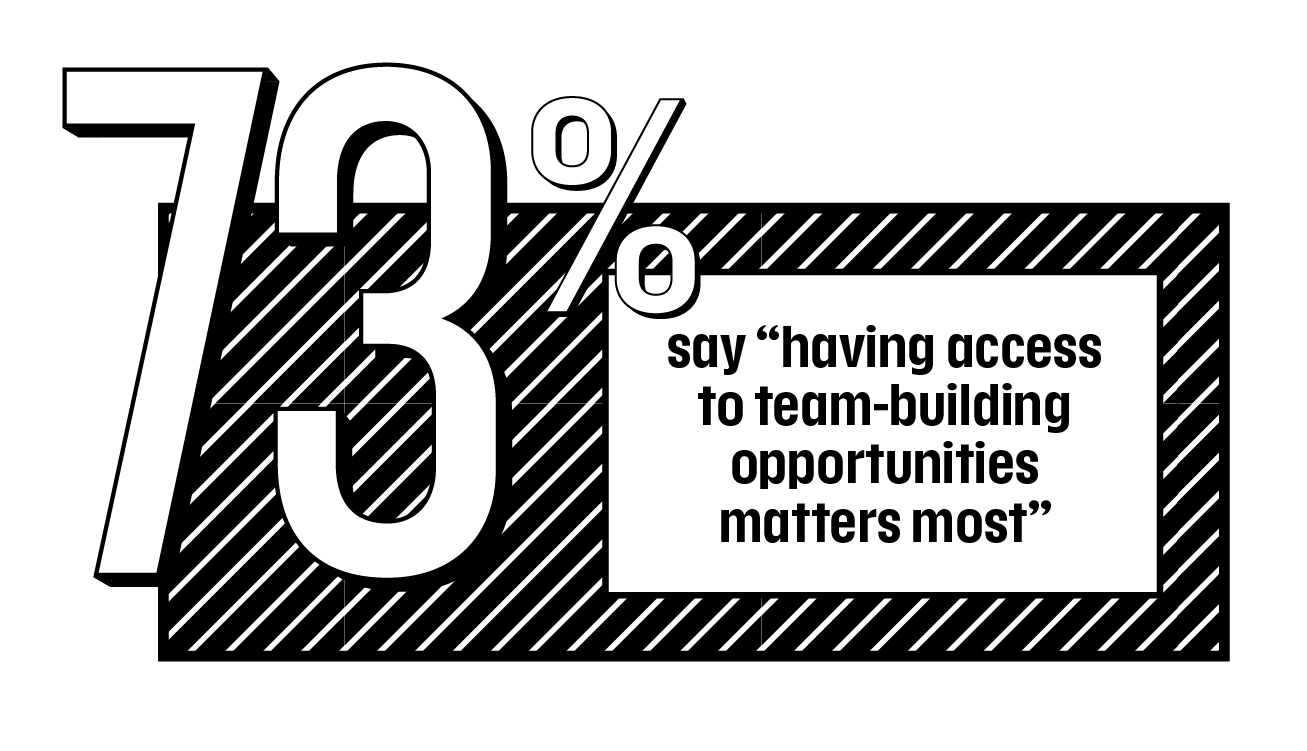
Bombas is a sock company whose name comes from the Latin word for “bee,” because bees live in a hive and work together to make the world a better place. That’s pretty much Bombas’s whole deal, too. CEO David Heath started the company because he read a stat on Facebook that the number one most requested item in homeless shelters is socks. So, first, he started carrying around extra socks with him so he could give them to people on the street. Then he started a company that would make sock donations a major part of the business model—Bombas gives a pair of socks to the homeless for every pair people buy. If the tale ended there, it’d still be pretty epic. It doesn’t. The spirit of helping those in need became the backbone not only of Bombas’s business but of the small but rapidly growing company’s culture. Teams volunteer at homeless shelters. They do outreach together. They bond.
“I remember the immense amount of gratitude and joy that I had when I first saw our team go out, I think there were probably five of us at a time. They served lunch for the first time at the Bowery Mission shelter,” Heath says. “And the comradery that created amongst us, knowing that we were serving a purpose that was larger than ourselves and larger than the company, I think that gave us an incredible amount of motivation to continue to fight for what we wanted to fight for. I get such an immense amount of joy seeing coworkers have relationships that extend beyond the office, people going on trips together, volunteering together, having inside jokes, or lunch groups. And I’m really proud knowing that we've created a place where people genuinely enjoy coming to work, not simply because they feel fulfilled by the work that we're doing, and not simply because they feel fulfilled by giving back to the community, but that they genuinely choose to be here and genuinely enjoy the people that they work with on a daily basis.”
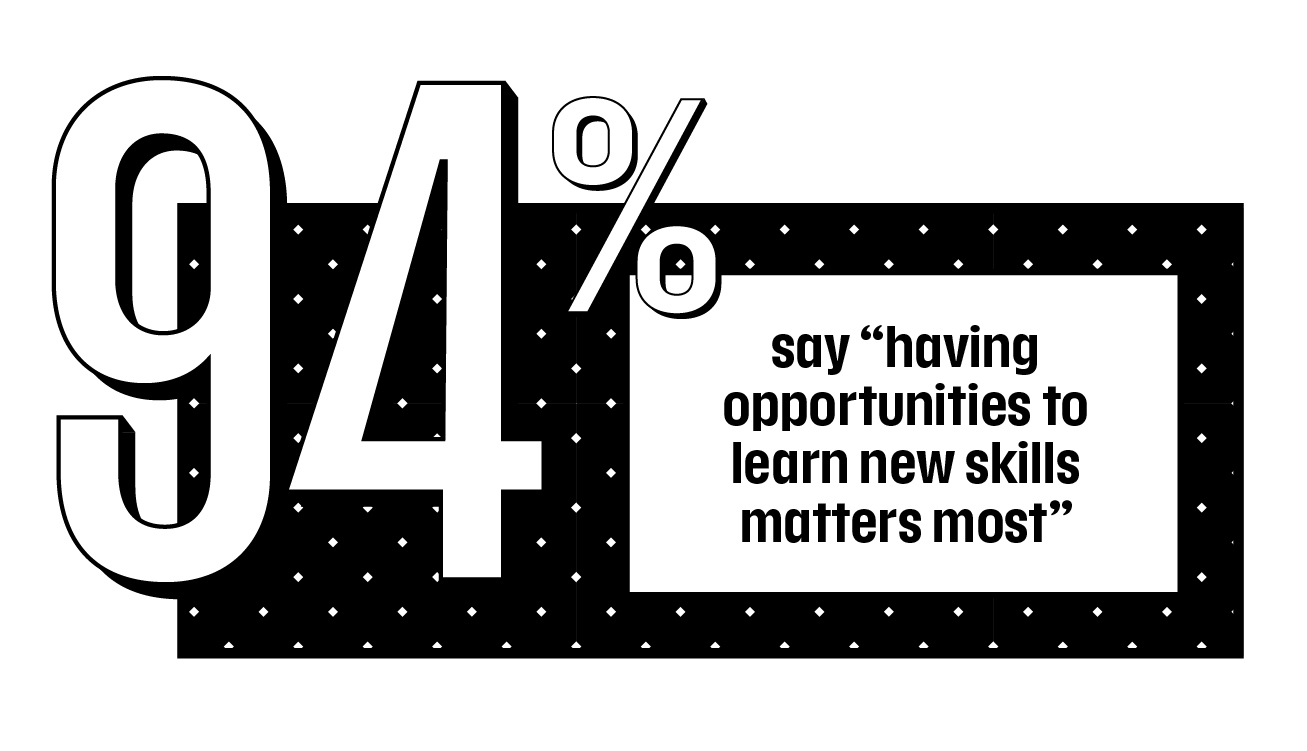
The definition of boredom is knowing exactly what to do and how to do it, day in, day out, wash, rinse, repeat. People don’t go to work for SMBs for repetition. They go for revolution. And they expect to leave each day being able to do something they couldn’t do the day before.
“I think one of the best moments for me as a founder and one of the biggest surprises is actually watching junior team members grow within the organization,” Bombas’s Heath says. “And I think it's most gratifying when they grow not due to anything that we or the management team put in place.”
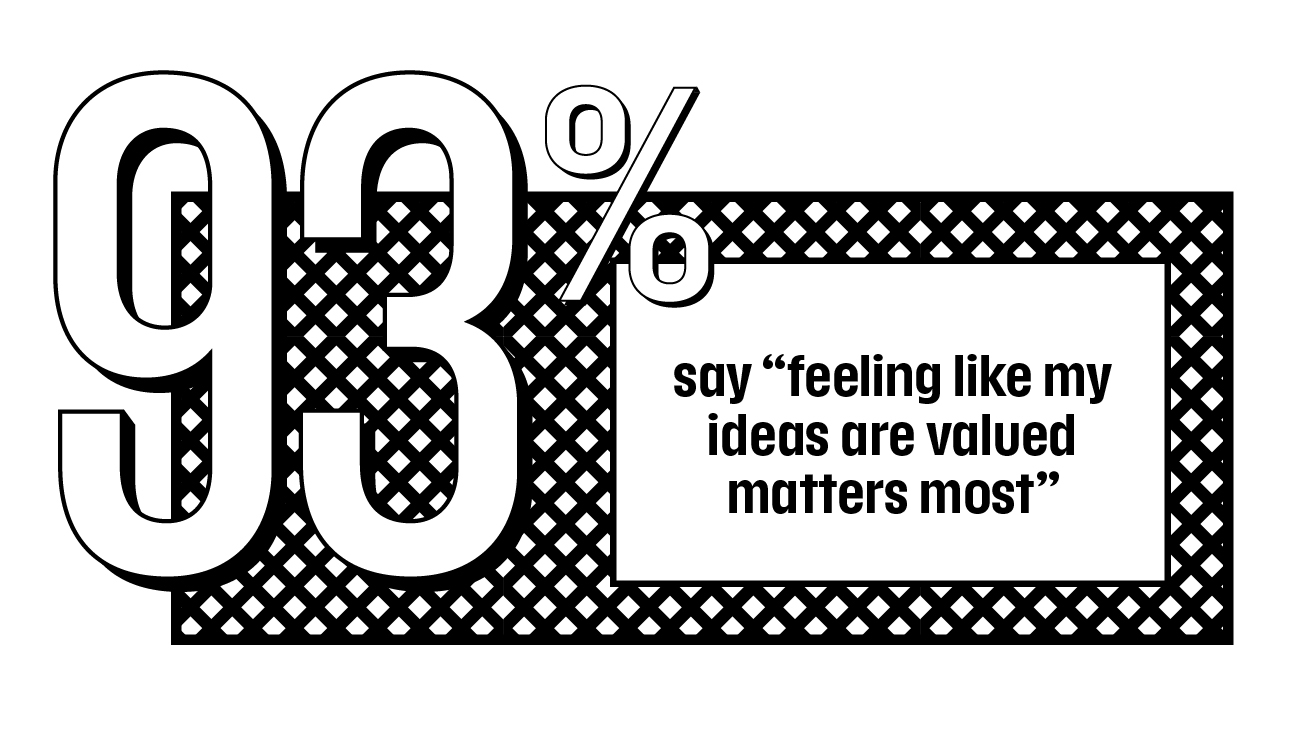
There’s this whole saying about millennials or younger workers feeling entitled. We have a related saying: whoever came up with that is short-sighted. The way TriNet sees things, with more than 16,000 customers and 300,000 work site employees,(as of May 2019—and mostly SMBs) is that younger workers want to contribute ideas, not just labor. Because they care.
“People want to make an impact quicker in the work that they do than they have in the past,” says TriNet CEO Burton Goldfield. “If they do not feel they are having an impact that is psychically rewarding for them, they will move on either to a different company or a different domain altogether.”
Fortunately, it doesn’t have to come to that
Take the experience at ALOHA, for example. When you’re a tiny little plant-based nutrition operation like ALOHA, and you’ve set your sights on challenging big food with snacks made only from the good stuff, every idea is not only considered, it’s deeply needed.
“There's literally 10 of us and 6 of us are in this office space, practically sitting on top of each other,” says Alexandra Stankiewicz, Chief Marketing Officer and Head of Online Sales for ALOHA. “If someone hiccups we all hear it, so people's opinions and thoughts are always heard here, too. And we all understand the dynamic like a soccer team or like any sports team that what we all do impacts the other.”
Gilbert from Dia&Co talks about valuing ideas as “empowerment,” and it’s a huge business advantage for her. “It really matters that everyone feels empowered because they are bringing themselves to work every single day,” she says. “Our people are the ones who are building the future, right? They have to feel like they can contribute toward what they’re building uniquely and that we will build a better version of this world and this future if we all bring ourselves every single day.”
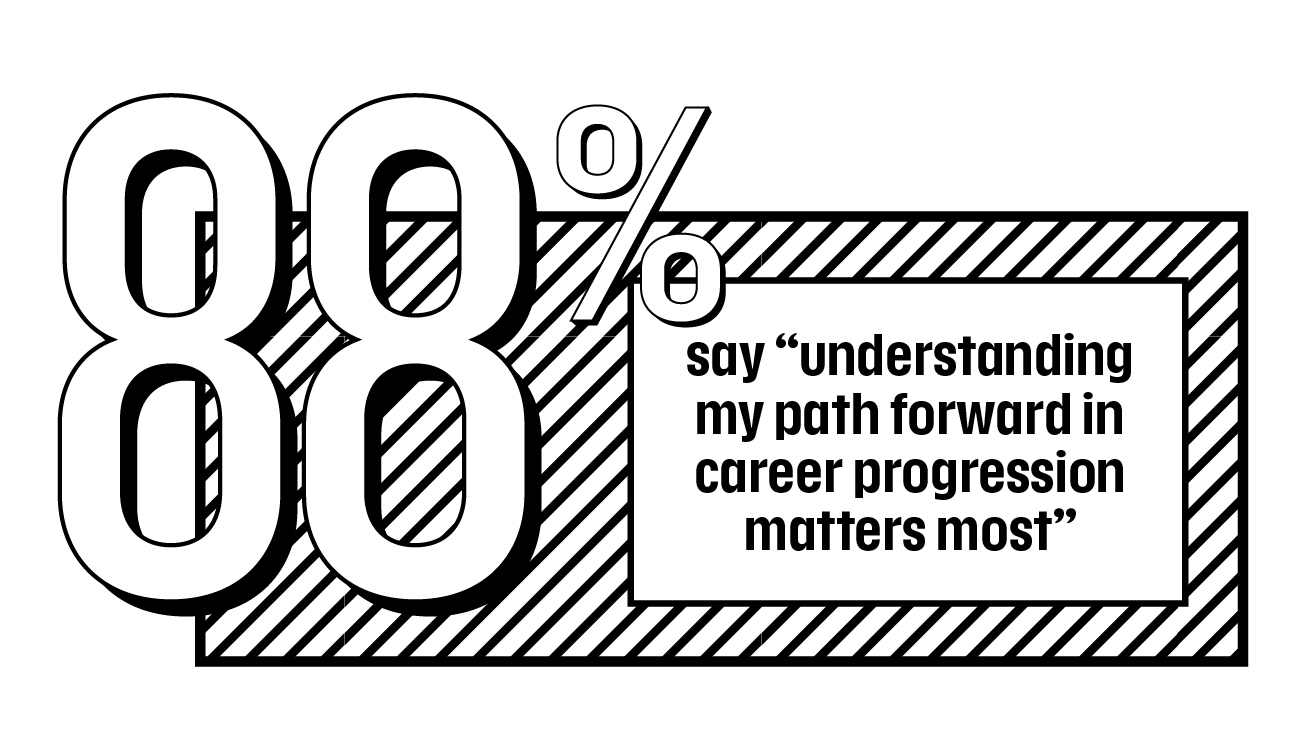
Why does career progression matter most to so many now? Over to TriNet’s CEO, Burton Goldfield: “In the past, I found that people were very comfortable moving up in a linear fashion. It used to be, for example, that if you wanted to be a senior leader in accounting, you had to be an expert accountant and an expert in managing first-level accounting people before you became a first-level manager. Today, I see a difference in both the timeframe and the approach that people are taking to making an impact. People rise by doing and being creative.”
Of course, creativity often means creating a career path, not waiting for someone to lay it out, especially at an early-stage, fast-moving company that’s creating its entire path to success at the same time employees might be looking to carve out careers. Bombas’s Heath tells just such a tale, a final example of how knowing what matters to SMB employees can elevate SMBs’ culture—and success.
“We hired this one guy as a customer service representative, and he had an immense amount of interest and passion in data and analytics,” Heath says. “And over the course of a few months, without really much of our knowledge, he taught himself SQL through YouTube videos. And then he kind of came in one day and was like, ‘Hey, I've been teaching myself SQL. I really want to create this database for the organization.’ And I remember that moment. We obviously were like, ‘Yes, of course!’ But we were truly surprised that somebody would take it on their own to grow and take the opportunity to come to us and say, ‘This is something that I'm really interested in.’ Without really asking for a ton of permission ahead of time, he just kind of took the initiative on his own and did it, so of course we supported it and let him put what he’d learned to work.”





